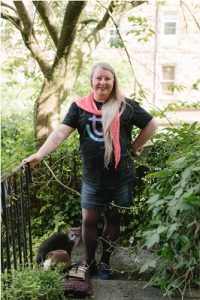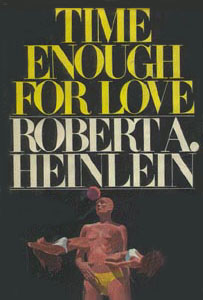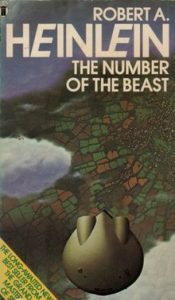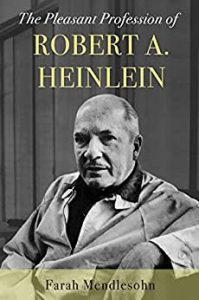
I grew up isolated and very much in the closet – an industrial and shipbuilding town down the river from Glasgow, as conservative and homophobic as such places always are, and a Catholic family with its institutional abhorrence of sex and the body, let alone sexuality or gender diversity. All the same it was a book-positive household. My great-aunt gave me an Enid Blyton book every weekend, my dad read thrillers, my mum read regency romances. My parents left me and my sister in the library so they could get the Saturday shopping (it was the Seventies…). And I was the “But why?” child, the one fascinated by space and science and documentaries and encyclopaedias and cool zoomy graphics of the future. From the time four-year-old me saw the last of the moon shots, that’s where I was going. My parents endured this rather than welcoming it, but other questions I found were positively unwelcome. Like “why can’t I wear a skirt like my sister?”
 Potential queerness was a vulnerability I didn’t dare show; I was bullied enough for being bookish and nerdy at school. I read lots of different things, the James Herriot vet books and the Alfred Hitchcock Three Investigators books, and Molesworth, and even Biggles. But when I was questioning my gender and wondering what was wrong with me, there was Robert A Heinlein, just casually changing someone’s sex because they could or because it was better for them.
Potential queerness was a vulnerability I didn’t dare show; I was bullied enough for being bookish and nerdy at school. I read lots of different things, the James Herriot vet books and the Alfred Hitchcock Three Investigators books, and Molesworth, and even Biggles. But when I was questioning my gender and wondering what was wrong with me, there was Robert A Heinlein, just casually changing someone’s sex because they could or because it was better for them. 
Most of the SFF from the seventies and eighties that deals with transgender issues, I wouldn’t recommend to a modern trans kid. Some was hostile to trans people, and much of the rest was cis men performing thought experiments and Not Getting It (except, maybe, Heinlein…). But that chink in possibility was there. I didn’t find queer society at that time, because of internalised homophobia and self-hatred. What I found was fandom. Places where people talked about possibilities and about books that opened those chinks wider; “There’s a crack in the world. That’s where the light gets in.”

Cons were one of the first places I was comfortable with dressing as myself. If anyone was surprised, they quickly made space in their heads to include me. No-one made a fuss. At the time I still considered it to be cross-dressing, but more perceptive people than myself said, “You’re not just dressing up, are you? You actually mean it.” I wasn’t comfortable elsewhere. Gay clubs I found to be intimidating; some men were pushy and predatory, most queer women ignored me, straight women on safari were intrusively inquisitive. Kink clubs were more relaxed but I was too shy to really make friends there. Burlesque venues were focused on elaborate glamour, and I’d grown up with drag being a thing done by middle-aged English comics. But in an environment where a Klingon wearing a kilt just got nods of appreciation, I didn’t stand out. That suited me fine and my fannish and writing friends around the Glasgow SF Writers’ Circle were the people I came out to first as I gradually transitioned from living as male.
Fandom has had its own journey to accepting queerness, and especially gender diversity. In the seventies and eighties a woman having sex with a woman was considered more edgy than having sex with an alien. That has changed. Twenty years ago the first person I had real discussions with about gender in general and mine in particular, advised me that Wiscon wouldn’t be a safe space for me. That has changed. Finding venues for queer writing and finding criticism that actually gets a queer point of view are still difficult, not even considering reactionaries’ efforts to turn the clock back to the Fifties. But that is also changing as people’s understanding grows, as more queer and trans people are visible and accepted as people, and as diversity in general is seen to be A Good Thing.
I still don’t interact much with queer society; I’m in my fifties, the club scene doesn’t suit me, and I didn’t make the friends in my twenties who might have carried me through. But there are queer bookshops springing up in the rubble left by Amazon and queer writing circles that are accepting of SFF. Speculative fiction is a mode in which we can write not only protests about being abused by a straight society, but alternatives where acceptance and joy are possible and unquestioned. And fans get that.
*************************************************************************************
This article was brought to you by Elaine Gallagher in association with Promotions.
Elaine (she/her) is a Glasgow writer, screenwriter and poet: her chapbook Transient Light is available in ebook from Speculativebooks.net or in paper copy from her directly, and you can read her work on elainegallagherwriter.wordpress.com. Elaine is also a campaigner and political candidate for the Scottish Greens, and occasionally publishes her views in her newsletter, Your Mileage Will Vary, at elainegallagher.substack.com
We are the Bid Team for Glasgow in 2024 – A Worldcon for Our Futures. We are part of the vibrant Worldcon community. We would love to welcome you to Glasgow and the Armadillo Auditorium for the 2024 Hugo Awards. Please consider supporting us.
